#roger sherman
Text






The rest of the founding cats are done plus King George cat cauee I couldn’t not make that
#rays art#history#us history#amrev#samuel adams#roger sherman#john hancock#robert r livingston#richard henry lee#king george iii
54 notes
·
View notes
Text
but, mr. adams in a nutshell
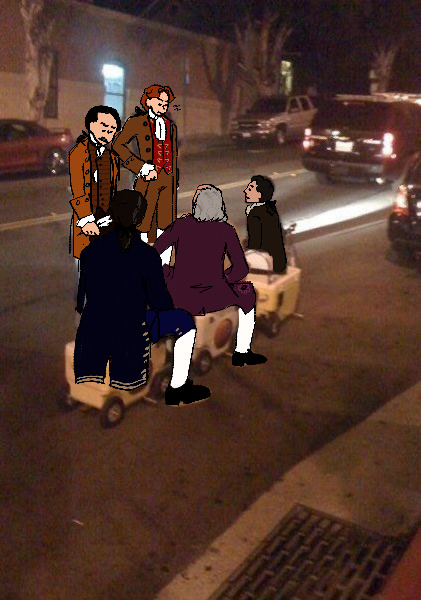
#1776 the musical#1776 1972 film#1776 movie#william daniels#ken howard#howard de silva#founding fathers#colonial america#john adams#thomas jefferson#robert livingston#roger sherman#benjamin franklin#shitpost#but mr adams
175 notes
·
View notes
Text
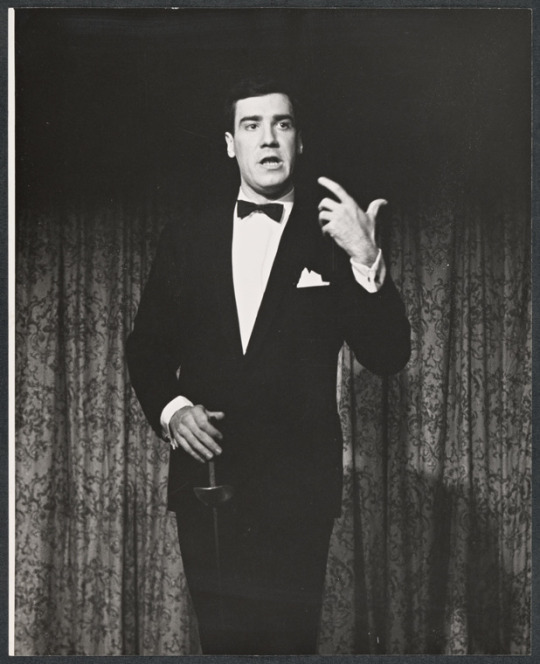



Happy heavenly birthday Rex Robbins! 🥳
(Surprised I don’t have any screenshots of him as Sherman, probably cuz I had to delete a lot of photos last month so it probably got deleted)
Fun fact: his birth name was actually Roger, not Rex.
8 notes
·
View notes
Text
Who is the worst founding father?
Round 2: Roger Sherman vs James Monroe

Roger Sherman (April 19, 1721 – July 23, 1793) was an American statesman, lawyer, and a Founding Father of the United States. He is the only person to sign four of the great state papers of the United States related to the founding: the Continental Association, Declaration of Independence, Articles of Confederation, and U.S. Constitution. He also signed the 1774 Petition to the King.
Sherman opposed appointment of fellow signer Gouverneur Morris as minister to France because he considered that high-living Patriot to be of an "irreligious nature".
Sherman is one of the most influential members of the Constitutional Convention. He is not well known for his actions at the Convention because he was a "terse, ineloquent speaker" who never kept a personal record of his experience, unlike other prominent figures. At 66 years of age, Sherman was the second eldest member at the convention following Benjamin Franklin (who was 81 years old at the time). Yet he was a critical opponent of James Madison and the more populous states. Sherman was also one of the most active members of the Convention, making motions or seconds 160 times (compared with Madison's 177 times).
James Monroe (April 28, 1758 – July 4, 1831) was an American statesman, lawyer, and diplomat who served as the fifth president of the United States from 1817 to 1825. A member of the Democratic-Republican Party, Monroe was the last president who was a Founding Father as well as the last president of the Virginia dynasty. He is perhaps best known for issuing the Monroe Doctrine, a policy of opposing European colonialism in the Americas while effectively asserting U.S. dominance, empire, and hegemony in the hemisphere. He also served as governor of Virginia, a member of the United States Senate, U.S. ambassador to France and Britain, the seventh Secretary of State, and the eighth Secretary of War.
After his service in the war, Monroe resumed studying law under Jefferson and continued until 1783. He was not particularly interested in legal theory or practice, but chose to take it up because he thought it offered "the most immediate rewards" and could ease his path to wealth, social standing, and political influence.
As president, Monroe signed the Missouri Compromise, which admitted Missouri as a slave state and banned slavery from territories north of the 36°30′ parallel.
Monroe sold his small Virginia plantation in 1783 to enter law and politics. Although he owned multiple properties over the course of his lifetime, his plantations were never profitable. Although he owned much more land and many more slaves, and speculated in property, he was rarely on site to oversee the operations. Overseers treated the slaves harshly to force production, but the plantations barely broke even. Monroe incurred debts by his lavish and expensive lifestyle and often sold property (including slaves) to pay them off. The labor of Monroe's many slaves were also used to support his daughter and son-in-law, along with a ne'er-do-well brother and his son.
Two years into his presidency, Monroe faced an economic crisis known as the Panic of 1819, the first major depression to hit the country since the ratification of the Constitution. The severity of the economic downturn in the U.S. was compounded by excessive speculation in public lands, fueled by the unrestrained issue of paper money from banks and business concerns.
Before the onset of the Panic of 1819, business leaders had called on Congress to increase tariff rates to address the negative balance of trade and help struggling industries. As the panic spread, Monroe declined to call a special session of Congress to address the economy. When Congress finally reconvened in December 1819, Monroe requested an increase in the tariff but declined to recommend specific rates. Congress would not raise tariff rates until the passage of the Tariff of 1824. The panic resulted in high unemployment and an increase in bankruptcies and foreclosures, and provoked popular resentment against banking and business enterprises.
The collapse of the Federalists left Monroe with no organized opposition at the end of his first term, and he ran for reelection unopposed. A single elector from New Hampshire, William Plumer, cast a vote for John Quincy Adams, preventing a unanimous vote in the Electoral College. He did so because he thought Monroe was incompetent.
#founding father bracket#worst founding father#founding fathers#brackets#polls#amrev#roger sherman#james monroe
16 notes
·
View notes
Text
The Thanksgiving Proclamation of 1789
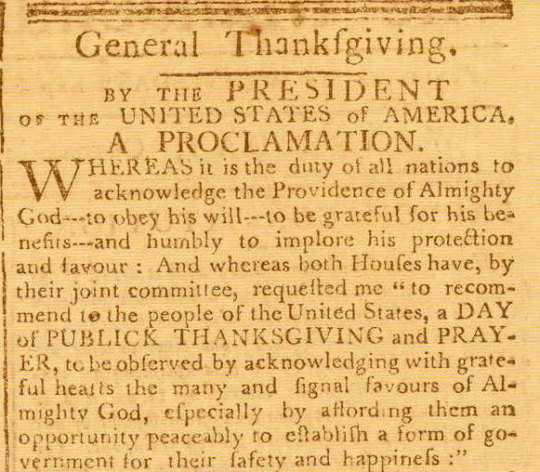
On the 25th of September, in New York City, which was then the seat of government — The inaugural session of the first Congress was about to recess when, Elias Boudinot, of New Jersey rose to introduce a resolution;
“That a joint committee of both Houses be directed to wait upon the President of the United States, to request that he would recommend to the people of the United States a day of public thanksgiving and prayer to be observed by acknowledging, with grateful hearts, the many signal favors of Almighty God, especially by affording them an opportunity peaceably to establish a Constitution of government for their safety and happiness.”
(source — Founders Archive, check footnotes)
Boudinot's resolution sparked a large debate. But the House was not unanimous in its determination, Aedanus Burke of South Carolina objected that he “did not like this mimicking of European customs, where they made a mere mockery of thanksgivings.”
Thomas Tudor Tucker, also of South Carolina, thought;
“The House had no business to interfere in a matter which did not concern them. Why should the President direct the people to do what, perhaps, they have no mind to do? They may not be inclined to return thanks for a Constitution until they have experienced that it promotes their safety and happiness. We do not yet know but they may have reason to be dissatisfied with the effects it has already produced; but whether this be so or not, it is a business with which Congress have nothing to do; it is a religious matter, and, as such, is proscribed to us. If a day of thanksgiving must take place, let it be done by the authority of the several States”
(source — Founders Archive, check footnotes)
Although Roger Sherman, of Connecticut, praised Boudinot, citing biblical precedents. The proponents of a Thanksgiving celebration prevailed, and the House appointed a committee consisting of Boudinot, Sherman, and Peter Silvester to approach the president with the idea. The Senate agreed to the resolution on the 26th, and appointed William Samuel Johnson and Ralph Izard to the joint committee. On the 28th, the Senate committee confirmed that they had laid the resolution before the president.
Alexander Hamilton heard of the news and helped Washington draft the Thanksgiving Proclamation, which was released to the public on the 3rd of October, 1789;
Whereas it is the duty of all Nations to acknowledge the providence of Almighty God, to obey his will, to be grateful for his benefits, and humbly to implore his protection and favor—and whereas both Houses of Congress have by their joint Committee requested me “to recommend to the People of the United States a day of public thanksgiving and prayer to be observed by acknowledging with grateful hearts the many signal favors of Almighty God especially by affording them an opportunity peaceably to establish a form of government for their safety and happiness.”
Washington's Thanksgiving Proclamation would set the standard for Thanksgiving Proclamations by future presidents, a list that included; James Madison, Abraham Lincoln, and then every president up to the present day.
Whatever reservations may have been held by some public officials, the day was successfully celebrated throughout the nation. The Virginia assembly, for example, resolved on the 19th of November;
“That the chaplain to this House, be accordingly requested to perform divine service, and to preach a sermon in the Capitol, before the General Assembly, suitable to the importance and solemnity of the occasion, on the said 26th day of November”
(source — Journal, by Virginia. General Assembly, House of Delegates)
Most newspapers printed the proclamation and announced plans for public functions in honor of the day. Many churches celebrated the occasions by soliciting donations for the poor. And although it isn't the same as the national holiday we celebrate today, many of the wealthy would still either donate to the poor or gather around for a family dinner.
But only in 1863, would Thanksgiving actually become an official holiday. President Abraham Lincoln encouraged Americans to recognize the last Thursday of November as “a day of Thanksgiving.” And a few years later in 1870, Congress followed suit by passing legislation making Thanksgiving.
#amrev#american history#george washington#Elias Boudinot#Aedanus Burke#Thomas Tudor Tucker#Roger Sherman#Peter Silvester#William Samuel Johnson#Ralph Izard#alexander hamilton#historical alexander hamilton#abraham lincoln#thanksgiving#history#Cicero's history lessons#founding fathers
14 notes
·
View notes
Text
Today in 1776 these MFs were appointed to write a declaration of independence
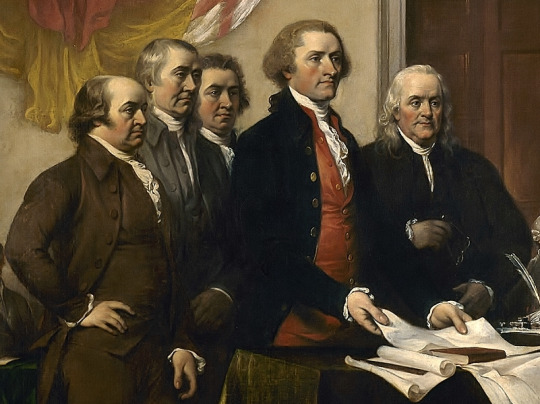
#committee of five#american revolution#declaration of independence#thomas jefferson#Benjamin Franklin#john adams#roger sherman#robert livingston#sick of the kings shite#goddess save the united states
13 notes
·
View notes
Video
youtube
Roger Sherman Words of Wisdom This quote reflects Sherman's belief in the importance of elected representatives staying connected with their constituents and understanding their needs and perspectives. He advocated for representatives to spend time with the people they represented to remain grounded and avoid becoming disconnected from the realities and concerns of their communities.
#youtube#Roger Sherman#Founding Fathers#Representatives#Words of Wisdom#Liberty#Freedom#Freedom of Speech#communites#America#American
0 notes
Text
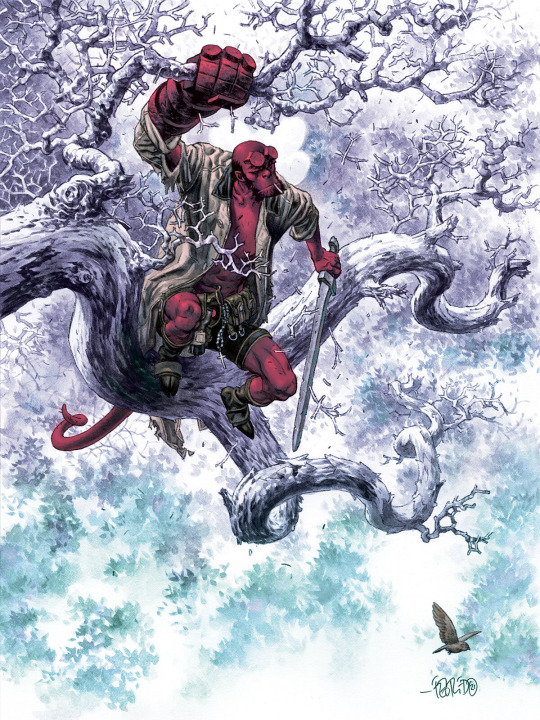





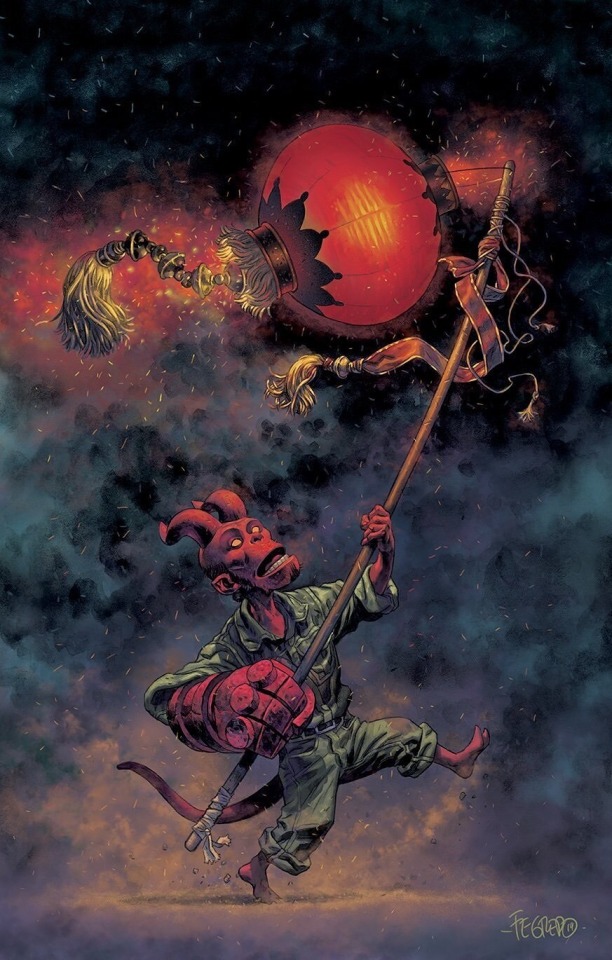
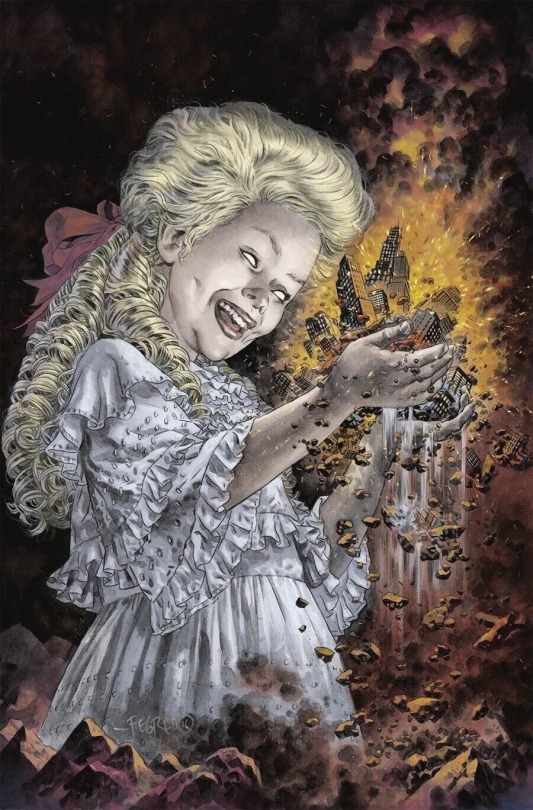

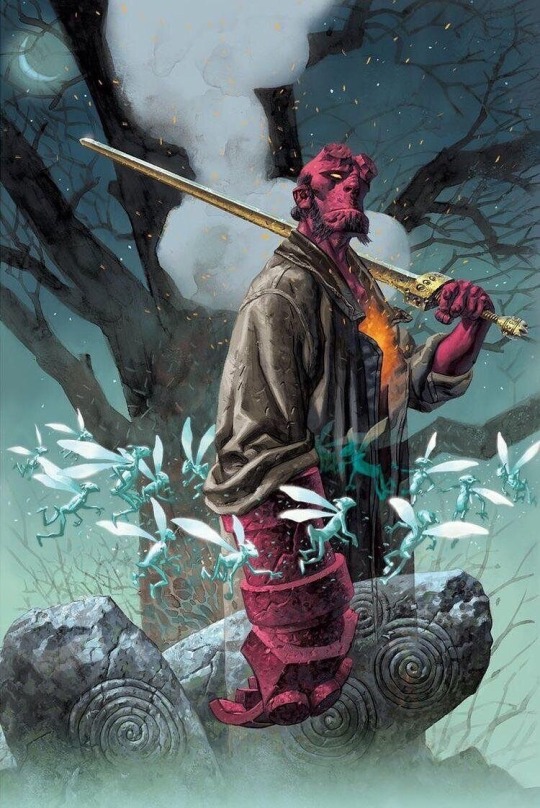
Hellboy & The B.P.R.D by Duncan Fegredo
#hellboy#duncan fegredo#b.p.r.d.#bprd#mike mignola#mignolaverse#young hellboy#abe sapien#liz sherman#johann kraus#ben daimio#kate corrigan#professor broom#roger the homunculus#varvara
252 notes
·
View notes
Text
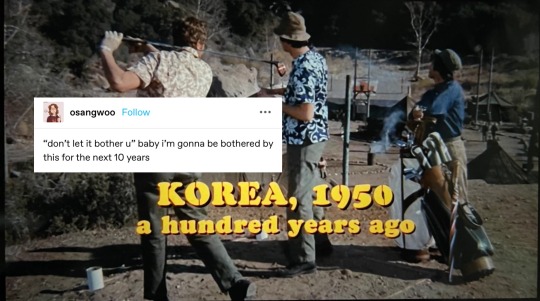
#is this anything?#m*a*s*h#mash#alan alda#hawkeye pierce#mash 4077#hawkeye#mike farrell#benjamin franklin pierce#trapper john mcintyre#margaret houlihan#Sherman potter#Henry Morgan#wayne rogers#loretta swit
251 notes
·
View notes
Photo




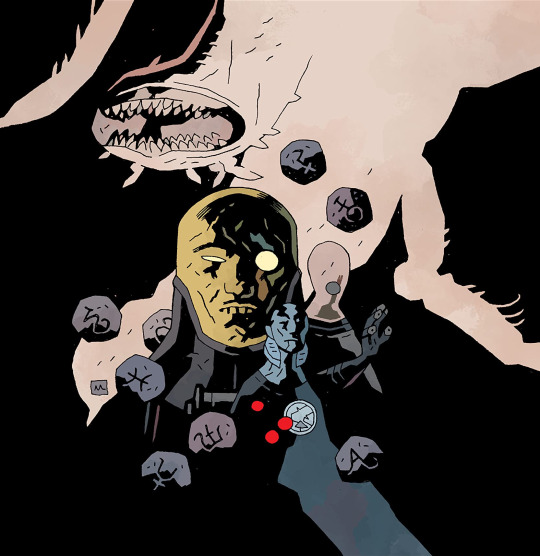
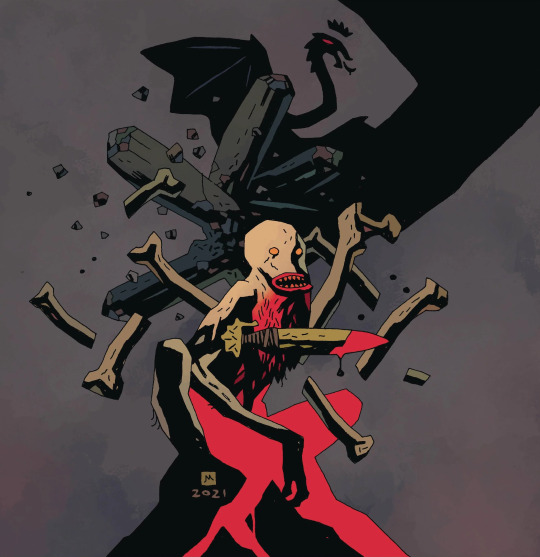
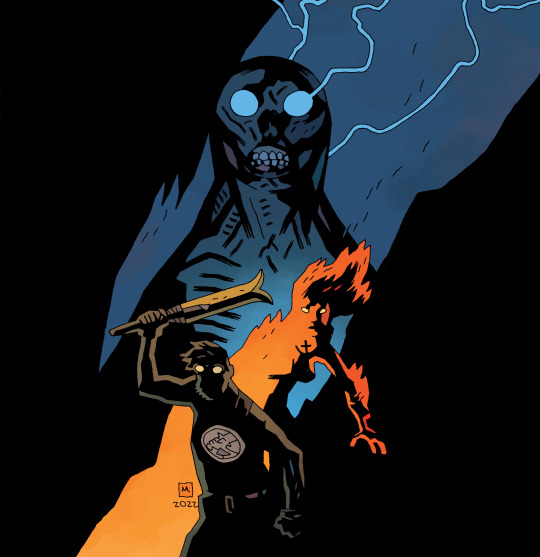



From the World of Hellboy: B.P.R.D. Omnibus cover art, by Mike Mignola.
#art#mike mignola#bprd#comics#abe sapien#liz sherman#roger the homunculus#benjamin daimio#lobster johnson#johann kraus#wendigo#ted howards#hellboy#grigori rasputin
375 notes
·
View notes
Text

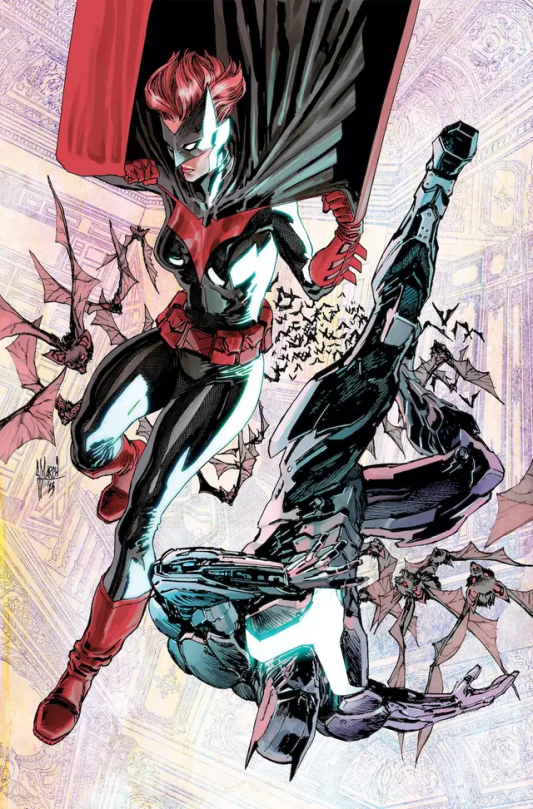

Outsiders #3 by Jackson Lanzing, Collin Kelly and Robert Carey. Cover by Roger Cruz. Variant covers by (2) Guillem March and (3) Hayden Sherman. Out in January 2024.
"'Dreaming of Bats.'
Only two things are certain about the mysterious door that has appeared in the Outsiders’ ship. The first? It was opened by the Drummer, using a set of Multiversal coordinates discovered in a dream. The second? Their computers have identified it only as a “narrative singularity.” For most, to step through such a door would be unthinkable, even insane—which makes it a perfect mission for the Outsiders! As Kate Kane and Luke Fox venture into the unknown reaches of the Multiverse, they will fall deeper and deeper into a maze of darkness, guided by unfamiliar versions of familiar faces. What is this strange world they’ve discovered? How are they connected to it? And who is lurking in the shadows, ready to destroy it all?"
#outsiders#batwoman#kate kane#batwing#luke fox#dc comics#jackson lanzing#collin kelly#robert carey#roger cruz#guillem march#hayden sherman#variant cover#comics
85 notes
·
View notes
Text
trios that feel polyamorous coded but no explanation
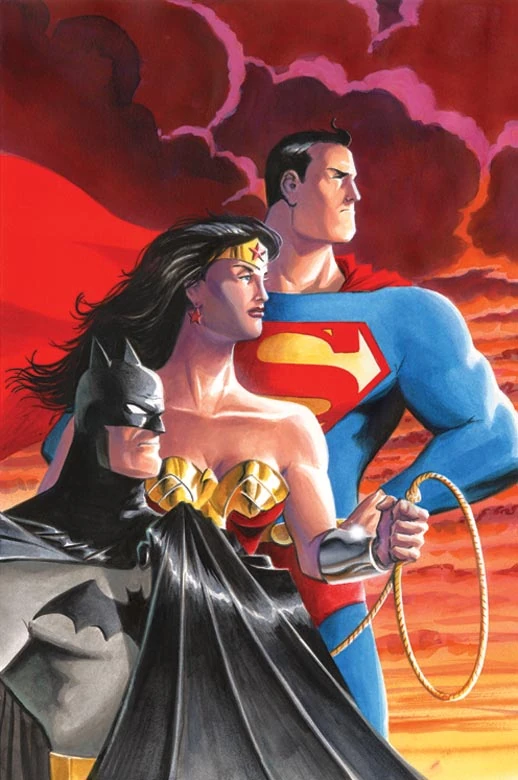
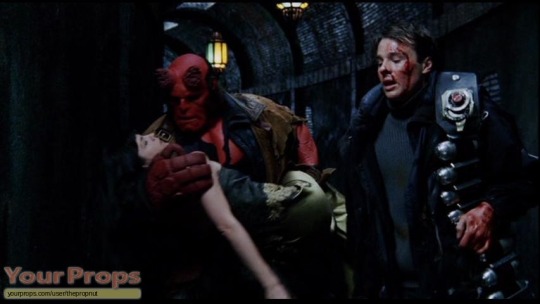



feel free to add
#superman#clark kent#bruce wayne#batman#wonder woman#diana prince#dc trinity#superwonderbat#dcu#hellboy#agent myers#liz sherman#manolo the book of life#the book of life#juaquin x maria#stevenatsam#steve rogers#sam wilson#natasha romanoff#matt murdock#foggy nelson#karen page#marvel#mcu#avengers
54 notes
·
View notes
Text
I actually can’t with them
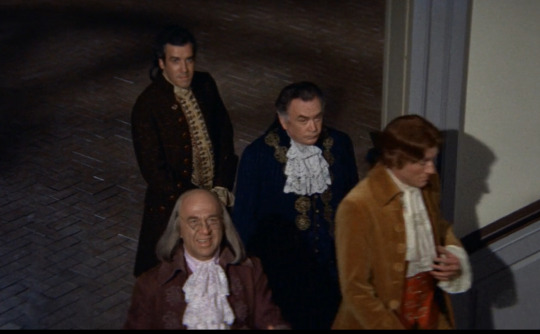
#colonial america#founding fathers#1776#1776 musical#1776 1972 film#1776 the musical#thomas jefferson#benjamin franklin#robert livingston#roger sherman#1776 movie
35 notes
·
View notes
Text
I just noticed that Roger calls everyone “brother” except for Adams 💀 damn even Sherman has his limits
Anyway, he’s adorable and thicc and we Stan him because I said so
17 notes
·
View notes
Text
Who is the worst?
Round 1: John Trumbull vs Roger Sherman
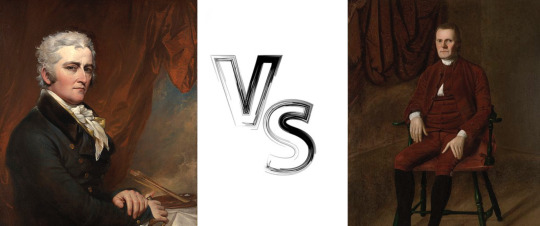
John Trumbull (June 6, 1756 – November 10, 1843) was an American artist of the early independence period, notable for his historical paintings of the American Revolutionary War, of which he was a veteran. He has been called the "Painter of the Revolution".
Trumbull's Declaration of Independence (1817), one of his four paintings that hang in the United States Capitol rotunda, is used on the reverse of the current United States two-dollar bill.
As a soldier in the American Revolutionary War, Trumbull rendered a particular service at Boston by sketching plans of the British and American lines and works. He witnessed the Battle of Bunker Hill. He was appointed second aide-de-camp to General George Washington, and in June 1776, deputy adjutant general to General Horatio Gates. He resigned from the army in 1777 after a dispute over the dating of his officer commission.
Trumbull was appointed president of the American Academy of the Fine Arts in New York City, serving from 1816 to 1836. Emphasizing classical traditions, Trumbull did not get along with the students. At the same time, his painting skills declined. In 1825, many of the students withdrew, founding the National Academy of Design. Unable to accommodate to changing tastes, the American Academy later closed in 1839 after a second fire destroyed its collections.
Roger Sherman (April 19, 1721 – July 23, 1793) was an American statesman, lawyer, and a Founding Father of the United States. He is the only person to sign four of the great state papers of the United States related to the founding: the Continental Association, Declaration of Independence, Articles of Confederation, and U.S. Constitution. He also signed the 1774 Petition to the King.
Sherman opposed appointment of fellow signer Gouverneur Morris as minister to France because he considered that high-living Patriot to be of an "irreligious nature".
Sherman is one of the most influential members of the Constitutional Convention. He is not well known for his actions at the Convention because he was a "terse, ineloquent speaker" who never kept a personal record of his experience, unlike other prominent figures. At 66 years of age, Sherman was the second eldest member at the convention following Benjamin Franklin (who was 81 years old at the time). Yet he was a critical opponent of James Madison and the more populous states. Sherman was also one of the most active members of the Convention, making motions or seconds 160 times (compared with Madison's 177 times).
#founding father bracket#worst founding father#founding fathers#amrev#brackets#polls#john trumbull#roger sherman
2 notes
·
View notes
Photo

Morgan Freeman as Theodore Joadson, Chiwetel Ejiofor as Ensign Covey, & Matthew McConaughey as Roger Sherman Baldwin in Amistad (Film, 1997).
#amistad#perioddramaedit#morgan freeman#Chiwetel Ejiofor#matthew mcconaughey#theodore joadson#ensign covey#roger sherman baldwin#19th Century#1830s#Ruth E. Carter
100 notes
·
View notes